Seated against the rammed-earth walls of Werkalemahu and Banchi’s home, we’re handed a plate of thick yellow honey with chunks of dabo bread straight from the fire.
“Enebela (Let’s eat)!” says Werkalemahu. “This is the purest, from the new hives.”
We’d just arrived in Fiche with the last truck load of modern beehives from Addis; part of our contribution to the Etse Fewus Association’s work to build an integrated herb and honey business with their medicinal garden.
In the corner, Banchi was making coffee from newly roasted beans as the rest of the group filled the small room with us to sample the first harvest of liquid gold; honey from the first modern hives we delivered earlier in the year.
It tasted like flowers and ran down our wrists!
“We want to be known for our honey too. It’s different to honey from the market because it has all the herbal properties,” says Gule, explaining how the new hives will be set among the many different medicinal plants at the communal garden site.

The hives arrive: Workalemahu and Etse Fewus members check out the new equipment in Fiche.

After completing a business skills course with local NGO WISE (Women in Self Employment) last year, the Etse Fewus Association presented Botanica Ethiopia with a proposal outlining how they could develop the garden to include beekeeping activities and turn an income from the sale of organic, medicinal honey.
Good quality honey is in high demand in Ethiopia, with much of it bought directly from small-scale farmers and household beekeepers for export to Europe and even further afield.
As part of their plan, Association members committed to bring 30 of their own traditional beehives to the medicinal herb garden and to invest at least half of their earnings from the first harvest back into their herb and honey venture. Werkalemahu, the group’s secretary and a beekeeper by profession, will provide training to all members in modern bee husbandry and processing techniques.
We agreed to buy 18 modern box beehives and enough wax to help the group get set-up, as well as equipment to maintain the hives and process honey for market. We delivered a honeycomb printing machine, a honey extractor, honey press and dispenser, beekeeping suits and corrugated iron to protect the hives from wind, rain and thieves at the garden site. Most importantly, we would purchase 18 precious queen bees to establish the hives.
“This will make a big difference to our livelihoods,” says Werkalemahu. They can harvest at least 18kgs of honey from each modern hive in a season, he says, as opposed to 5-8kgs from a traditional Kafo hive made of eucalyptus, mud and false banana leaves.
“Honey from the modern hives is also much better quality and we can reuse or sell the honeycomb from them as well. The extra income and the pollinating bees will help us to maintain the garden and grow more herbs.”

The new hives are set up at the communal garden site. The Association hope the bees will help pollinate the herbs while providing an important extra source of income in the form of organic, medicinal honey.

More than 60 varieties of medicinal herbs and sweet flowers will provide a smorgasbord for the Etse Fewus bees.

Lizzie at the garden in December.
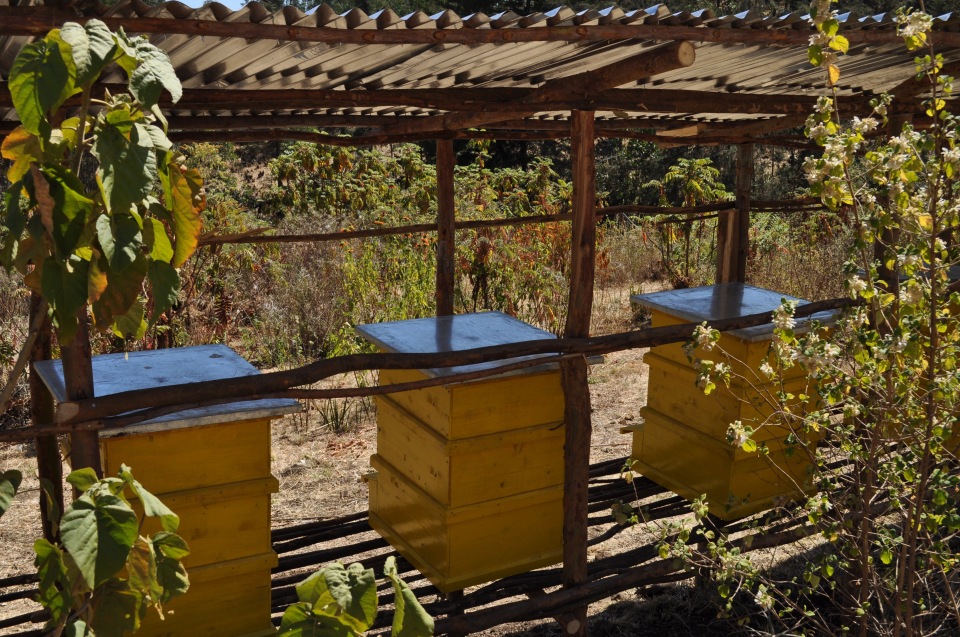
Etse Fewus will begin collecting from the new hives following the Meher rainy season in October this year. They talk about renting a shop window by the bus station in town to sell to travelers on their way to Addis and Bahir Dar in the north. But Shikerke doesn’t think that will be necessary:
“This honey is so beautiful and so unique, people will come to us from everywhere in the country to buy it,” she says. “Just watch!”
If they can make a success of their honey, the Kebele (local government) has promised to allocate the group an additional adjacent plot of land to expand their medicinal garden and place more hives – something that will be good for herb conservation, for community health, for business and of course, for the bees.
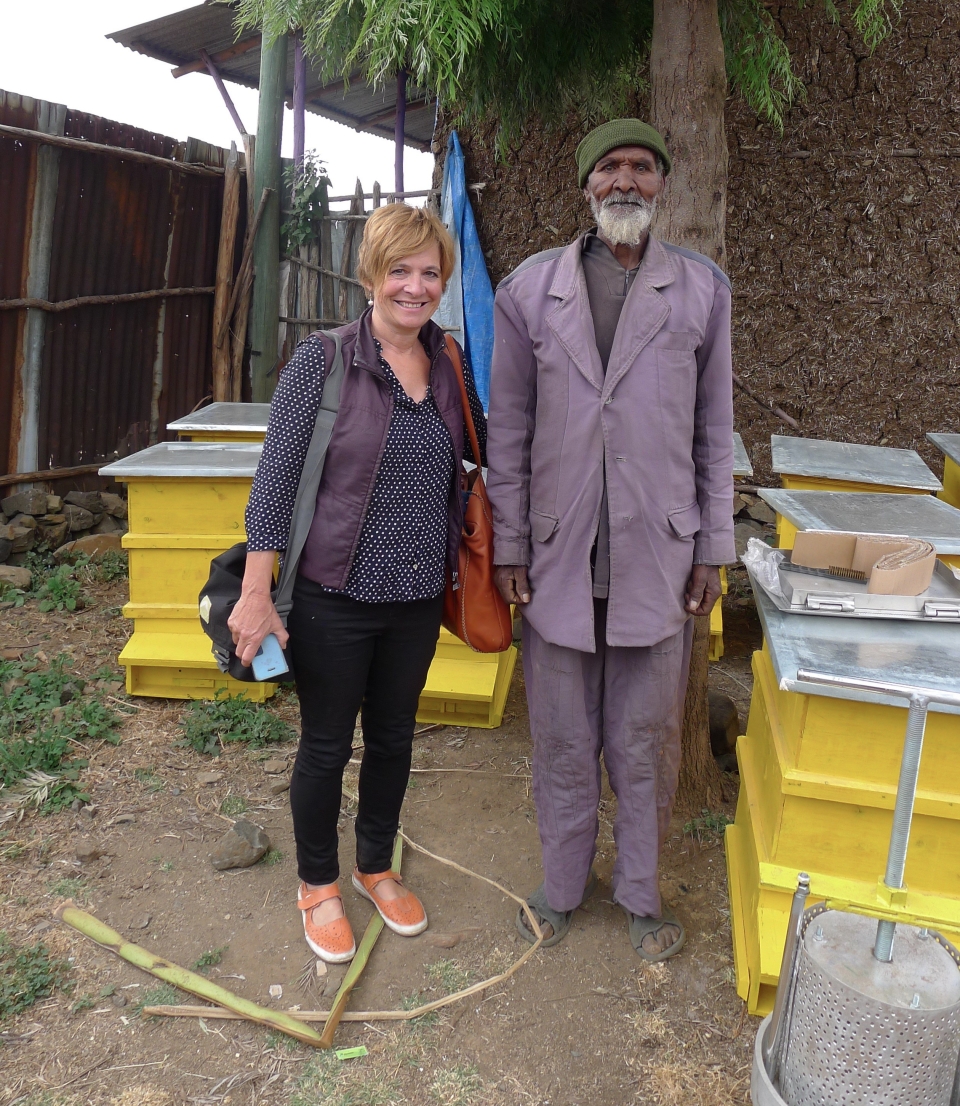
Lizzie with Gashe Abe, one of the founding members of the Etse Fewus Association.
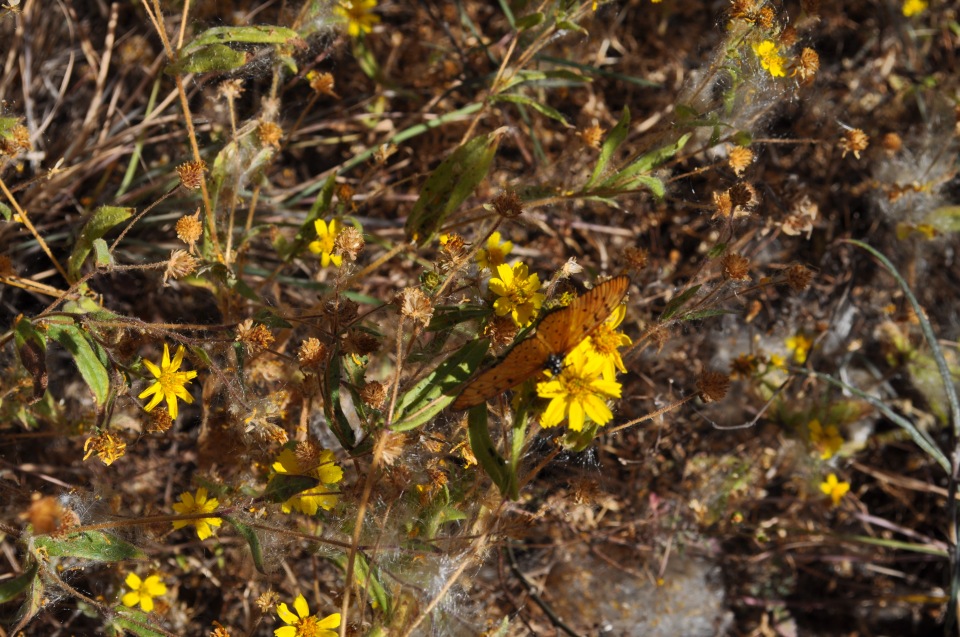
![]()
Read more about the importance of honeybees to biodiversity and food security in Ethiopia HERE.
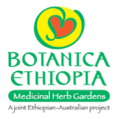
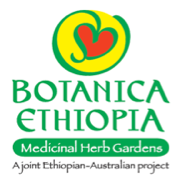


Awesome! Medicinal honey on dabo bread straight from the fire and freshly roasted Ethiopian coffee sounds like the breakfast of heaven 🙂
Fantastic work that the Etse Fewus Association do there in Ethiopia! Congrats to all, including Gashe Abe, Werkalemahu and Banchi, Gule, Shikerke and of course Lizzie (and May). Hope I can taste the honey next time I’m in Ethiopia 🙂
Bee…uatiful story May and congratulations Lizzie for guiding this amazing venture to success 🐝🌾🐝🌿 xx
Thanks Kerrie for all your support
Fantastic!How do we buy this honey
Hi Louise
We will be sure to let everyone know when their honey is ready for sale in Ethiopia. I can’t wait to try it myself!
I love the work you do. I see much success for the community. And the sunny pictures are to die for as we here are in cold season and eagerly awaiting for the sun’s full arrival. African LOVE!
Thanks Sara! Yes the community are amazing and will do well with the addition of the beekeeping to their herbs